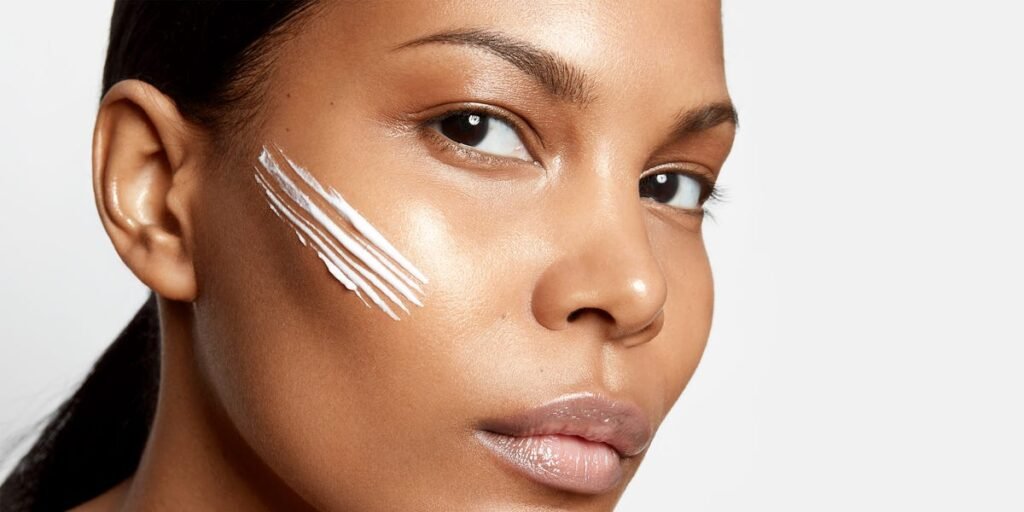Embracing Inclusivity: The Rise of Skin Care for All Complexions
For years, the needs of skin of color were largely neglected within the beauty industry. Many individuals had to mix multiple foundation shades just to find a decent match. This trend began to change in 2017 when Rihanna launched her groundbreaking Fenty Beauty, which introduced a comprehensive selection of 40 base shades catering to Black and Brown consumers. This innovation sparked the phenomenon known as the “Fenty Effect,” prompting many brands to rethink their product offerings.
Now, the inclusivity movement is extending beyond makeup into skincare, finally recognizing that melanin-rich skin has unique requirements.
Understanding the Unique Needs of Melanin-Rich Skin
The Science Behind Skin of Color
Dermatologists have long known that darker skin requires specialized attention. It tends to be more susceptible to dryness, irritation, and conditions like hyperpigmentation. According to Dr. Nada Elbuluk, a professor of dermatology and director of the Skin of Color and Pigmentary Disorders Program at USC, adverse reactions in darker skin can lead to lasting discoloration.
Key Differences to Consider
- Moisture Levels: Skin of color often has a different structure, which can make it harder to retain hydration. This is especially true for individuals of African or Afro-Caribbean descent.
- Sensitivity: Black and Brown skin types can be more sensitive, leading to increased risks of irritation.
- Ageing: While skin of color may show signs of aging, such as wrinkles and fine lines, these tend to appear later compared to lighter skin types.
Expanding Product Testing
Historically, many cosmetic products have been tested predominantly on lighter skin tones, resulting in a knowledge gap regarding how these products perform on darker skin. Dr. Neelam Vashi, from Boston University, emphasizes that limited testing can mislead brands about product efficacy and safety. Fortunately, some brands are beginning to change this paradigm.
A Case in Point: Dior’s Testing Methodology
Dior’s recent product, Capture Totale Le Sérum, redefined its testing approach by using the Pantone color system to represent a broader range of skin tones. The brand engaged over 600 participants to ensure diverse representation, leading to a formula responsive to the unique attributes of varied skin types.
Creating Effective Formulations
As the demand for inclusive skincare grows, brands founded by people of color are stepping up to meet the specific needs of melanin-rich skin.
Innovative Brands Leading the Charge
-
Eadem: Co-founders Marie Kouadio Amouzame and Alice Lin Glover recognized an absence of gentle products for darker skin. Their Milk Marvel Dark Spot Serum targets hyperpigmentation without lightening the surrounding skin.
-
Sepia: Founders Mike Modula and Anna Bueno made it a priority to test their Eventide Retinol Renewal Serum across all Fitzpatrick skin types, ensuring broad applicability and minimal irritation.
-
Pavise: Designed by Sophie Bai, the Dynamic Age Defense SPF addresses the issue of white cast mineral sunscreens often leave on darker skin tones—ensuring a sheer finish that provides effective sun protection.
The Testing Dilemma in Sunscreens
Despite advancements, sunscreen testing remains biased. The US FDA requires that SPF is only tested on Fitzpatrick skin types 1, 2, and 3, leaving darker skin types underrepresented. This gap can lead brands to unknowingly produce SPF products that are less effective for these skin tones.
Why Representation Matters in Skincare
Having founders and researchers with diverse backgrounds significantly enhances the product development process. According to Dr. Victoria Barbosa, insights from various lived experiences lead to better health outcomes in skincare. This focus on diversity is essential as the demographic landscape of the U.S. continues to evolve.
Conclusion: The Path Ahead
As we move toward a more inclusive skincare industry, the demand for products catering to all skin tones will undoubtedly increase. With deeper understanding and representation, consumers can finally find products that meet the unique needs of their skin.
Recommended Products for Melanin-Rich Skin
- Sepia Eventide Retinol Renewing Serum: Suitable for all skin types without irritation.
- Eadem Milk Marvel Dark Spot Serum: Fights discoloration effectively.
- Dior Capture Totale Le Sérum: Proven efficacy across diverse skin tones.
- Pavise Dynamic Age Defense SPF: Mineral SPF that blends seamlessly on darker skin.
In summary, the shift towards recognizing and addressing the specific needs of melanin-rich skin is not just a trend—it’s a necessity for a more equitable beauty landscape. Embrace the change, and explore products designed with you in mind!
For more information on skincare for diverse skin types, visit Healthline or check out American Academy of Dermatology.


